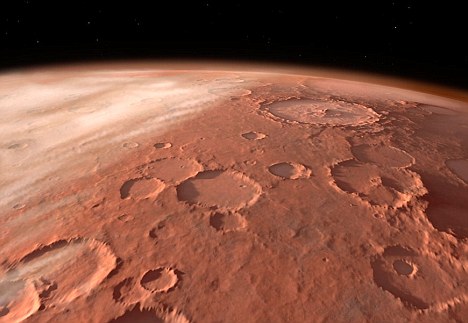(单词翻译:单击)
A new study suggests that the surface of Mars may contain toxic chemical compounds called perchlorates which destroy bacteria in the presence of UV light.
一项最新研究表明,火星表面可能含有一种名为“高氯酸盐”的有毒化合物,它能够在有紫外线的情况下杀死细菌。
The findings suggest that Mars may be more uninhabitable than previously thought, and could have implications for human exploration on the red planet.
该发现表明,火星可能没有此前所想的那么宜居,这对人类探索这一红色星球会有所影响。
To understand the impact of these chemicals, the researchers investigated their effect on Bacillus subtilis – a common bacteria often found on spacecrafts.
为了了解这些化学物质的影响,研究人员们调查了它们对枯草杆菌--一种宇宙飞船上常见的细菌--的影响。

In the laboratory, the researchers put magnesium perchlorate under short-wave UV radiation, similar to conditions on the surface of Mars.
在实验室中,研究人员们将高氯酸镁暴露于类似于火星表面环境的短波紫外辐射下。
They found that under these conditions, the magnesium perchlorate became bacteriocidal, meaning it killed all bacteria.
他们发现,在这些条件下,高氯酸镁变得具有杀菌作用,也就是它杀死了所有细菌。
The Bacillus subtilis lost viability within minutes in the presence of the magnesium perchlorate.
这些暴露于高氯酸镁的枯草杆菌在几分钟内就失去了活性。
The researchers also suggest that two other components on the Martian surface - iron oxides and hydrogen peroxide - may act alongside the perchlorates resulting in a 10 times increase in bacteria death.
研究人员们还表示,火星表面的其它两种成分--氧化铁和过氧化氢--可能会与高氯酸盐协作,导致细菌死亡率翻了10倍。
While the toxic effects of the Martian surface have been suspected for some time, the findings suggest that the surface of Mars could be very dangerous to cells.
虽然怀疑火星表面的毒性效应已有一些时间,但是此次发现表明,火星表面对于细胞而言是一大威胁。


